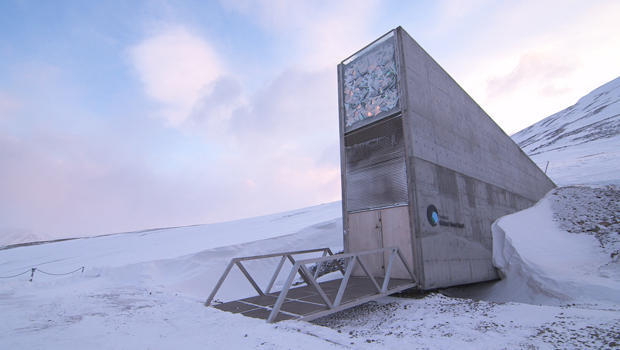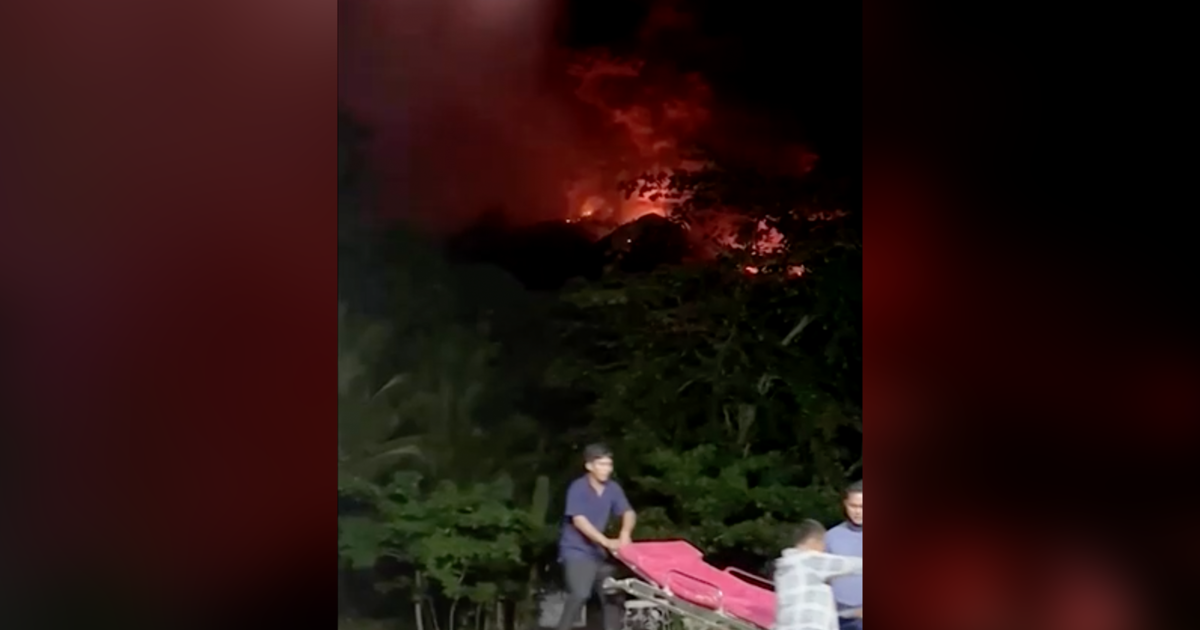"This is history in the making": Cherokee Nation becomes first U.S. tribe to preserve culturally important seeds in Arctic "doomsday" vault
For more than a decade, the Svalbard Global Seed Vault — also known as the "doomsday" vault — has collected and maintained the world's largest collection of diverse crops. This week, the Cherokee Nation became the first tribe in the United States to be invited to deposit samples in the vault.
According to a Cherokee Nation press release, the tribe's secretary of natural resources has collected nine samples of heirloom crops to send to the long-term seed storage facility, which is located deep inside a mountain on a remote island halfway between mainland Norway and the North Pole. The vault was built in 2008 to withstand man-made and natural disasters and is part of an international effort to ensure the preservation of a wide variety of plant seeds.
The vault has the capacity to store 4.5 million varieties of crops and currently holds nearly 1 million samples from nearly every country in the world.
In the case of a catastrophe, crops from the vault could provide food for humans, however, it also serves to protect crops that are becoming endangered due to climate change.
Included in the Cherokee Nation samples is Cherokee White Eagle Corn, the tribe's most sacred corn. They also sent Cherokee Long Greasy Beans, Cherokee Trail of Tears Beans, Cherokee Turkey Gizzard black and brown beans, Cherokee Candy Roaster Squash and three other varieties of corn.
Every variety sent to the vault predates European settlement in the U.S., officials said.
"This is history in the making, and none of it could have been possible without the hard work of our staff and the partnership with the team in Norway," said Cherokee Nation Principal Chief Chuck Hoskin Jr. "It is such an honor to have a piece of our culture preserved forever. Generations from now, these seeds will still hold our history and there will always be a part of the Cherokee Nation in the world."
Luigi Guarino, director of science for the Global Crop Diversity Trust, reached out to the tribe's Senior Director of Environmental Resources Pat Gwin after hearing a 2019 National Public Radio interview about the Cherokee Nation's heirloom seed bank program.
The seeds will be deposited on February 25 with the 2020 collection.
"He sent me an email and said they would be honored to have the tribe's seeds in the seed vault," said Gwin. "This is a tremendous opportunity and honor for the tribe. Additionally, knowing the Cherokee Nation's seeds will be forever protected and available to us, and us only, is a quite valuable thing indeed."





